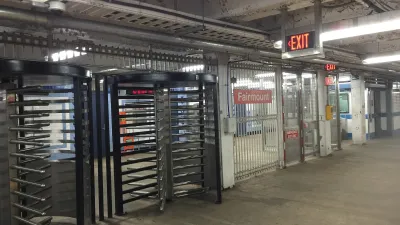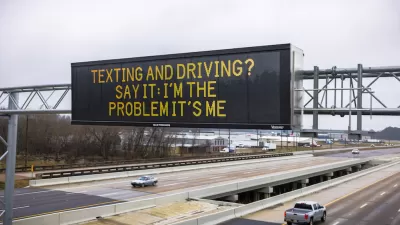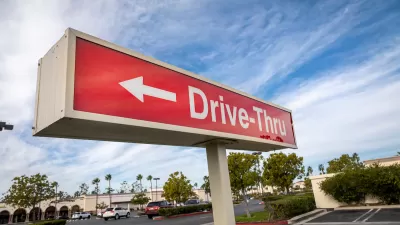Call it the low-hanging fruit of traffic safety: a number of states around the country post traffic fatality figures on the message boards posted along highways. Questions remain whether such safety campaigns actually work.
Aarian Marshall reports on a new road safety campaign by the Vermont Agency of Transportation (VTrans), modeled on programs in Tennessee and Colorado. The method for the program: posting the number of traffic fatalities on the electronic message boards planted alongside the state's highways.
Marshall writes: "The agency is hoping that by publicly posting the number of highway deaths each week, more people might be frightened into buckling up—or putting down the cellphone, or backing away from the car while drunk, or traveling closer to the speed limit."
Marshall goes on to cite the inconclusive body of evidence about whether the signs actually work. There's also already a body of work by writers expressing their frustration with similar program, such as this column by Eric Zorn for the Chicago Tribune.
FULL STORY: The New, Very Visible Way Vermont Is Fighting Road Deaths

Montreal Mall to Become 6,000 Housing Units
Place Versailles will be transformed into a mixed-use complex over the next 25 years.

Planetizen Federal Action Tracker
A weekly monitor of how Trump’s orders and actions are impacting planners and planning in America.

DARTSpace Platform Streamlines Dallas TOD Application Process
The Dallas transit agency hopes a shorter permitting timeline will boost transit-oriented development around rail stations.

Study: 4% of Truckers Lack a Valid Commercial License
Over 56% of inspected trucks had other violations.

Chicago Judge Orders Thousands of Accessible Ped Signals
Only 3% of the city's crossing signals are currently accessible to blind pedestrians.

Philadelphia Swaps Car Lanes for Bikeways in Unanimous Vote
The project will transform one of the handful of streets responsible for 80% of the city’s major crashes.
Urban Design for Planners 1: Software Tools
This six-course series explores essential urban design concepts using open source software and equips planners with the tools they need to participate fully in the urban design process.
Planning for Universal Design
Learn the tools for implementing Universal Design in planning regulations.
City of Mt Shasta
City of Camden Redevelopment Agency
City of Astoria
Transportation Research & Education Center (TREC) at Portland State University
US High Speed Rail Association
City of Camden Redevelopment Agency
Municipality of Princeton (NJ)





























